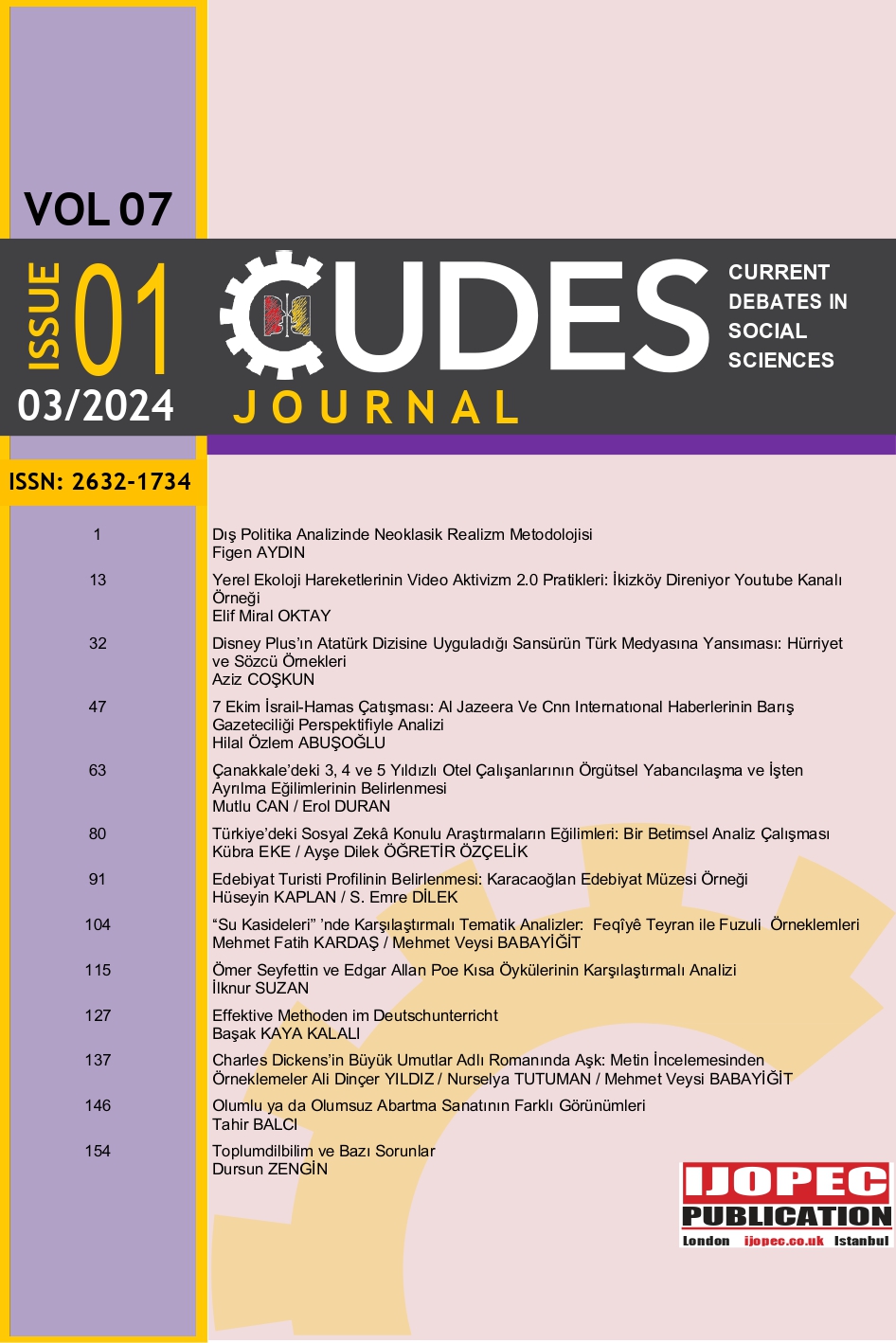Author :
Abstract
Uluslararası ilişkiler teorilerinin Sovyetlerin dağılmasını izah edememesi ve yaşanan süreçlerin açıklanmasında yetersiz kalması yeni bir bakış açısına ihtiyaç duyulduğunu göstermiştir. Birliğin dağılmasıyla devletlerin dış politikasında etkili olan iç dinamikler, karma bir metodun takip edilmesi gerektiğini göstermiştir. Devletlerin dış politikasının analiz edilmesi ve yorumlanması adına geliştirilen neoklasik realizm teorisi, devletlerin dış politikasının incelenmesinde etkili olan dinamikleri kapsamlı şekilde sunmaktadır. Buna göre devletler sadece küresel sistemden gelen etkiler kapsamında dış politika üretmemekte, yerel faktörlerin de etkisiyle hareket etmektedir. Devletlerin dış politikasını analiz ederken ara değişkenlere odaklanan teori, “neden” sorusunu değerlendirerek dış politika kararlarına cevap aramaktadır. Nitekim çalışma görece yeni olan ve bir dış politika analizi teorisi olarak geliştirilen neoklasik realizm kuramını unsurları kapsamında açıklamaktadır. Görece az çalışılması ve eleştirilerin getirilmesi teorinin açıklanmasına ihtiyaç duyulduğunu göstermektedir. Çalışma, neoklasik realizm kuramını unsurları ve tarihsel bağlamı ile açıklamaktadır. Böylece teorinin takip ettiği karma metodoloji ile uluslararası sistem teorisi değil, bir dış politika analizi teorisi olduğunu göstermeye odaklanmaktadır.
Keywords
Abstract
The failure of international relations theories to explain the dissolution of the Soviets and their inadequacy in explaining the processes that took place showed that a new perspective was needed. With the dissolution of the Union, the internal dynamics that influenced the foreign policy of the states showed that a mixed method should be followed. Neoclassical realism theory, developed to analyze and interpret the foreign policy of states, comprehensively presents the dynamics that are effective in examining the foreign policy of states. Accordingly, states do not produce foreign policies only within the scope of the effects of the global system, but also act under the influence of local factors. Focusing on intermediate variables when analyzing the foreign policy of states, the theory seeks answers to foreign policy decisions by evaluating the question "why". As a matter of fact, the study explains the relatively new theory of neoclassical realism, which was developed as a foreign policy analysis theory, within its elements. The fact that it has been studied relatively little and criticisms have been made shows that the theory needs to be explained. The study explains the theory of neoclassical realism with its elements and historical context. Thus, it focuses on showing that the theory is a foreign policy analysis theory, not an international system theory, with the mixed methodology it follows.
